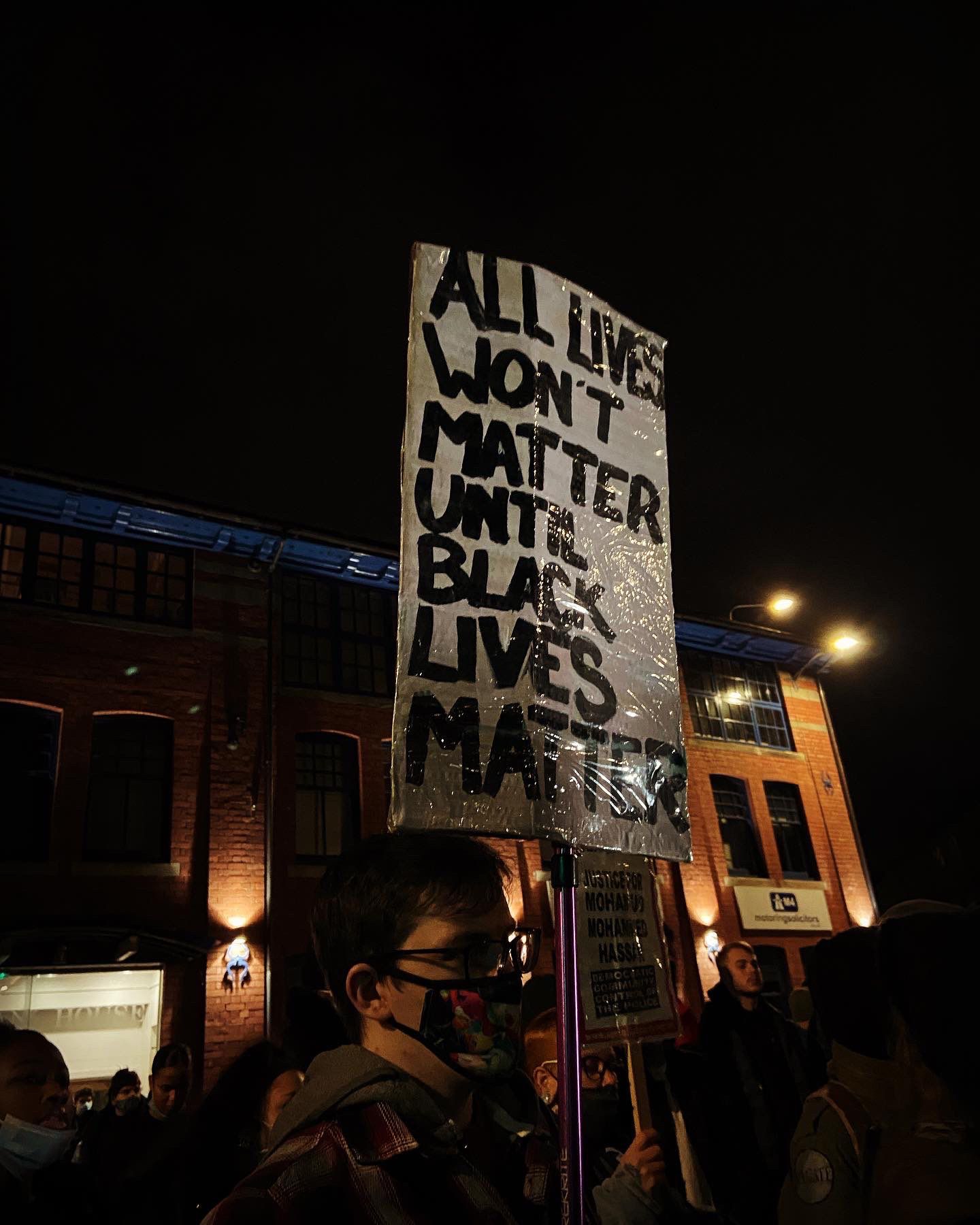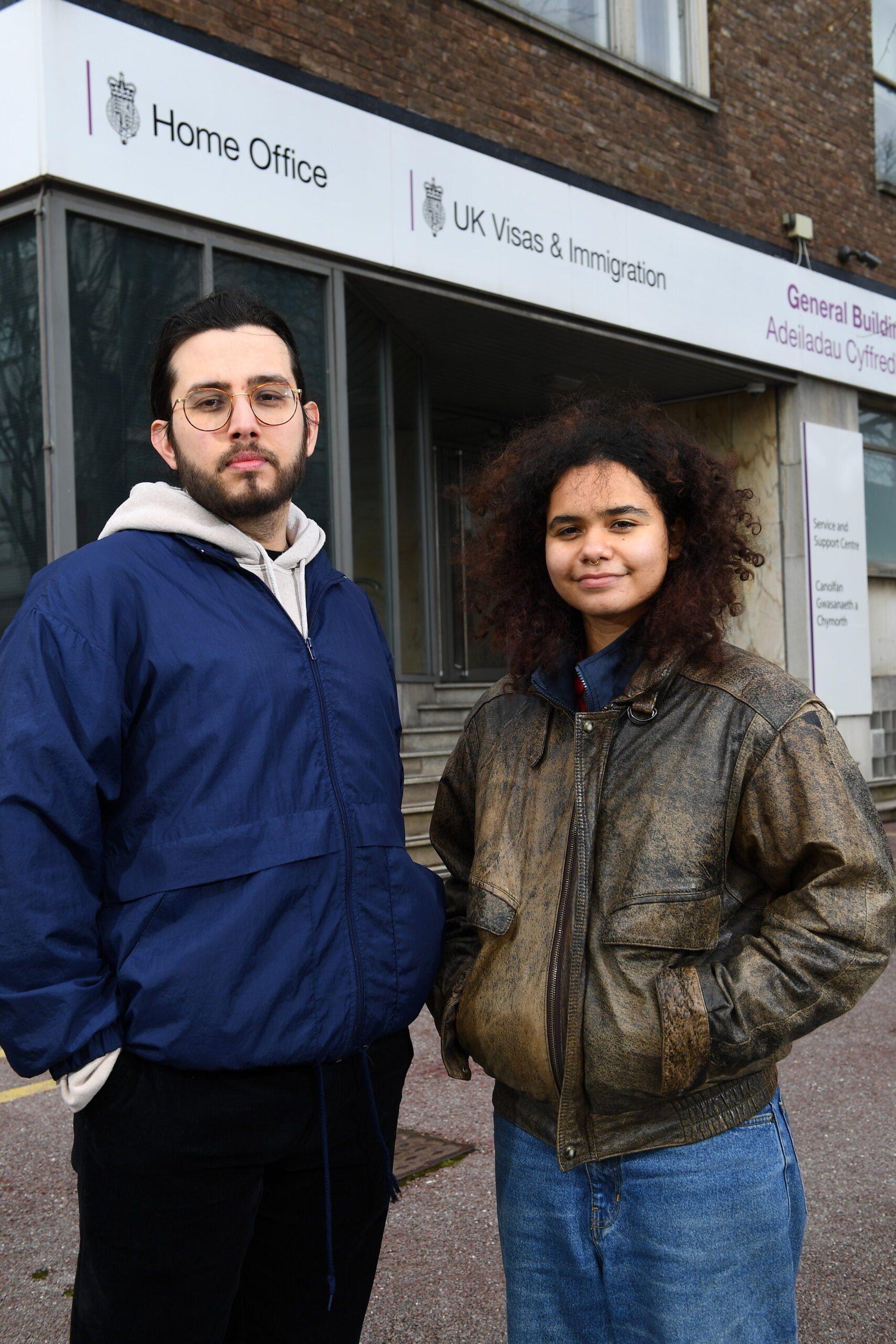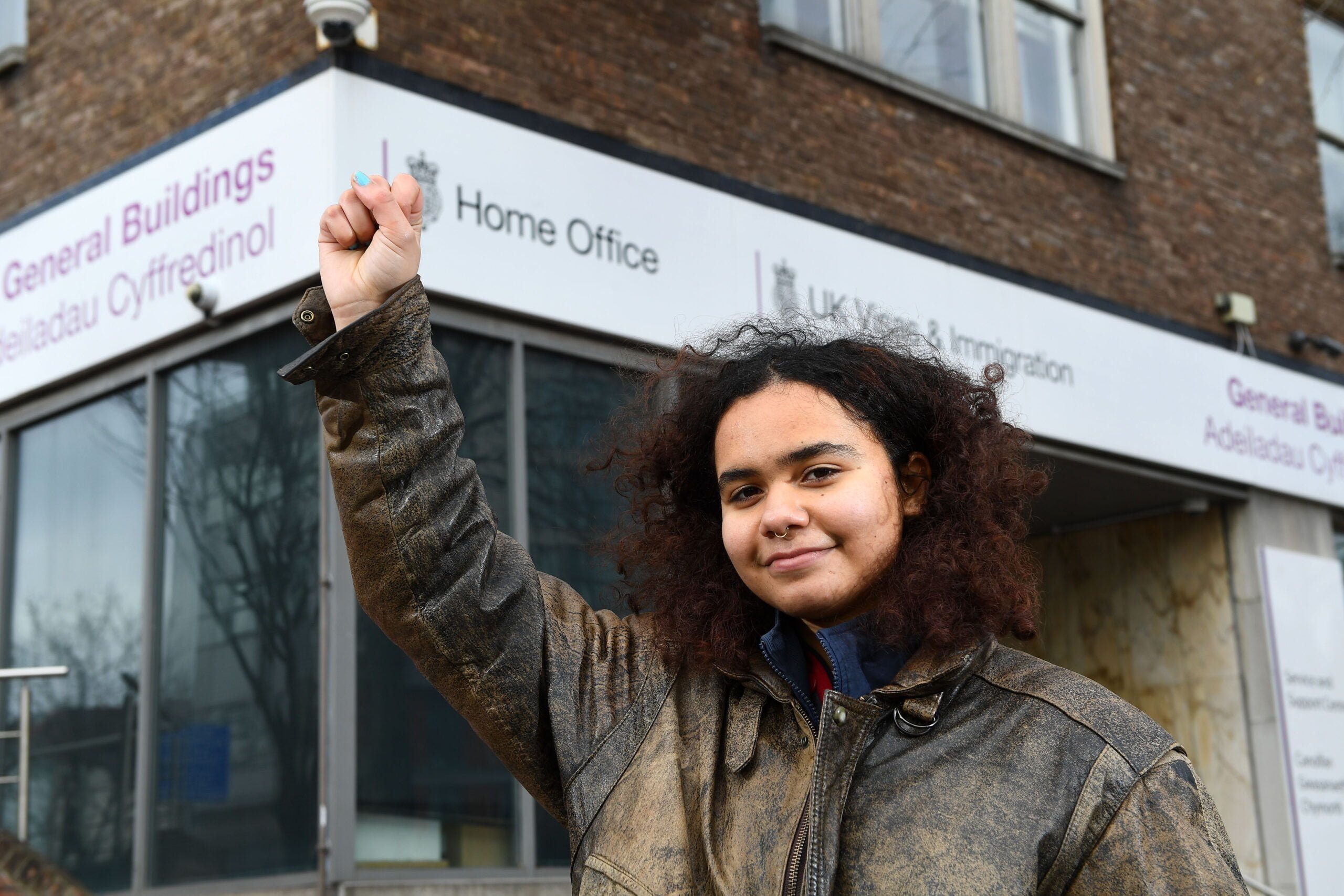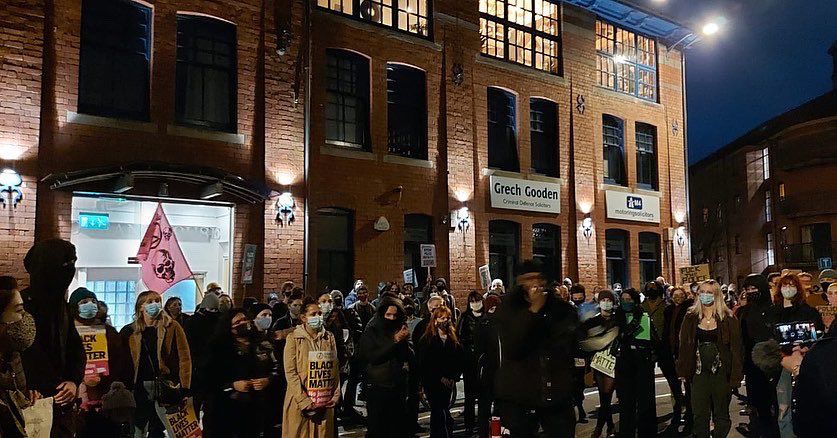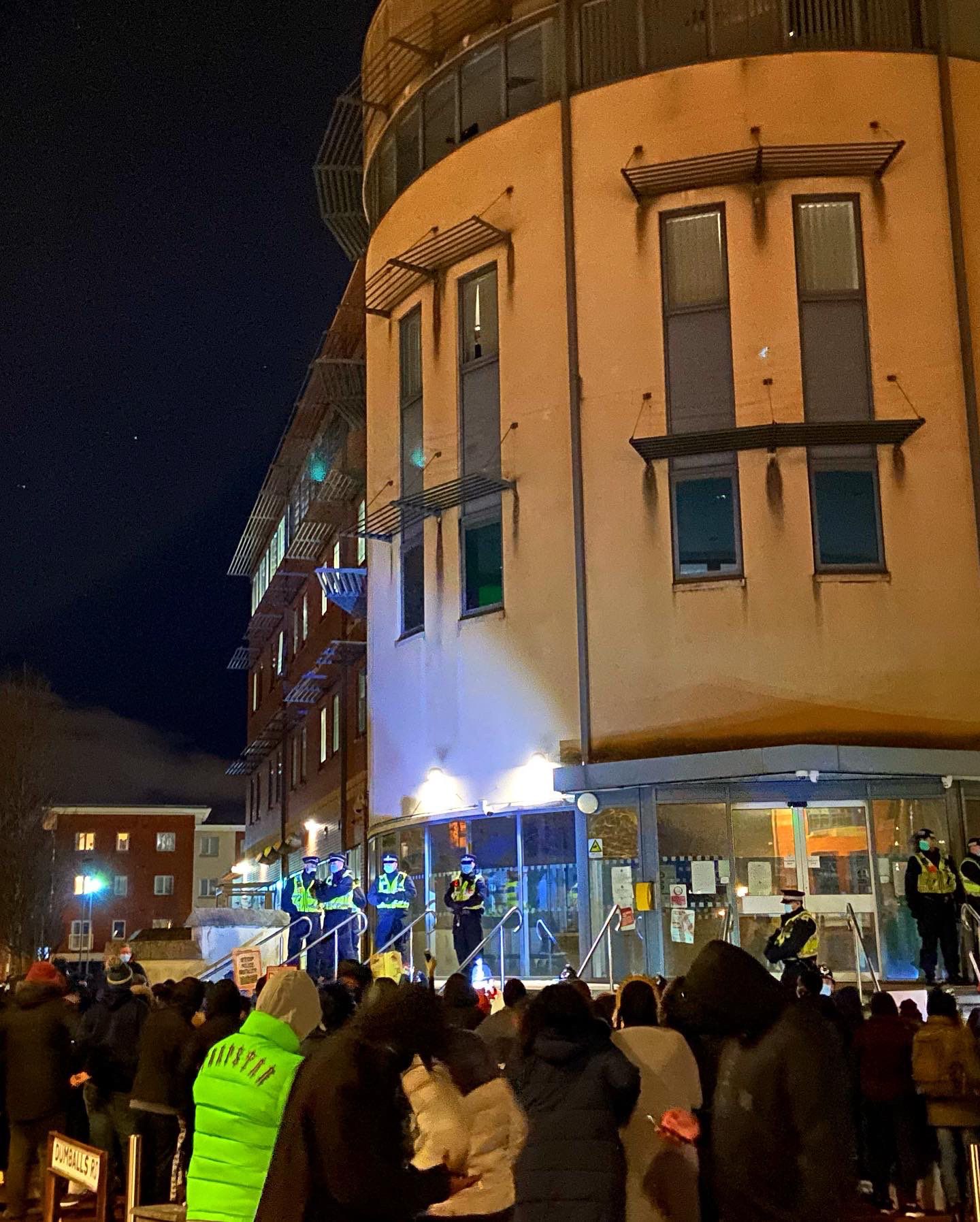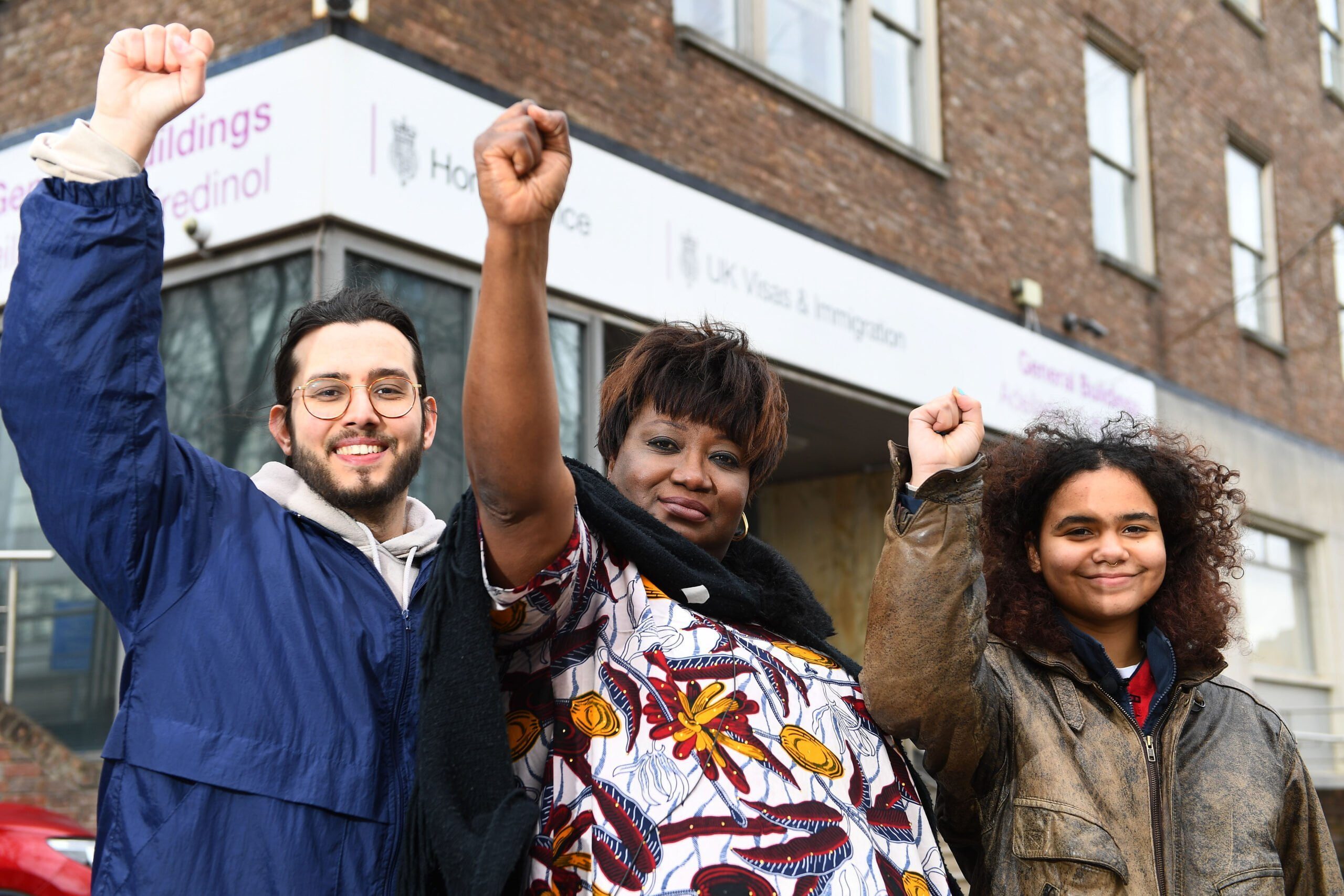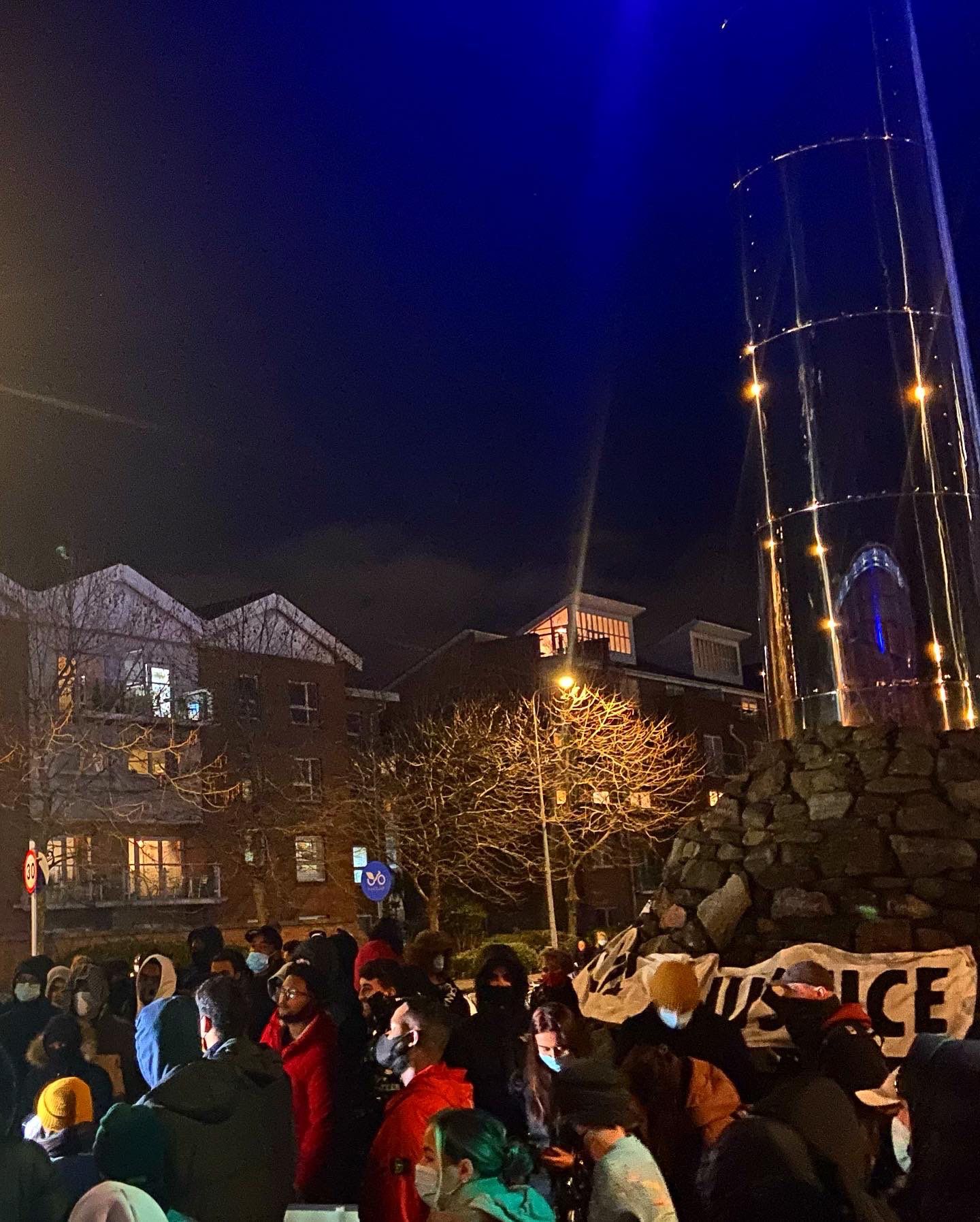Black Lives Matter to me means radical self-acceptance, radical acceptance of your community in the face of oppression, suppression, racism and classism and solidarity with those in your community. And I believe long term solidarity through Black Lives Matter and through organisations adjacent to Black Lives Matter will lead to liberation of those who need it most.
Because all systems of white supremacy, all systems of police brutality, are learned systems, and most of those systems were learned from the UK. The modern policing system that we have currently was used first in Ireland in order to suppress the Irish Republican movements. And then they were then brought over here. America normally goes to the UK for aid, whether that’s to bankroll different military operations, to bankroll police operations, and police arming. So, the UK is completely guilty. And there’s so much evidence to back that. That has also been proven with the Palestinian protest for Palestinian liberation, where Palestinian activist groups have been targeting so many arms and weaponry factories here in the UK. Because a lot of systems of oppression on this planet, their roots are in this country, and pretending that’s not the case will not help anyone in our community.
Concerning following Covid-19 rules, I completely understand that as someone who knows people who are immune compromised, who are more likely to die from COVID that there is a big need to follow social distancing guidelines, to follow all the rules that will keep our community safe. And it is definitely a selfish act to go out needlessly during a pandemic when so many of our community members will be in danger from these actions. However, it is our duty as community members, as human beings, to speak up for those who are suppressed, oppressed by different ingrained institutions in our society, because as long as they are not abolished, they will still be their kind of oppressing, marginalised groups. So, we always have to come out and support those groups, no matter what.
The death of George Floyd was almost a reckoning of an amalgamation of so much second-hand trauma from seeing black people, black women, black children, black men being mercilessly killed by those with power or supposed power in the communities. I have grown up during multiple wars, so I have seen black and brown people being left at the border, being bombed, mercilessly killed and now facing discrimination once they’ve reached a safe haven like the UK. They also face Islamophobia and racism. So, I always became callous to discrimination and to racism because that’s an everyday experience with so many people like myself. But seeing the murder of George Floyd, where I was literally watching his life step away from him, was definitely a reckoning in my life and made me want to pursue activism in my community because I did not want that to happen in my community. I wanted to be proactive, not reactive, which I feel like many people in our community felt during that time.
The cases of the deaths of Christopher Kapessa, Mahmoud Hassan, Moayed Bashir and the imprisonment of Siyanda happened on my front doorstep, meaning that there was no way to ignore it, there was no way to justify such act of brutality and that made me want to educate myself, because even though I experienced racism at home, I almost wanted to believe that it wasn’t an issue in this country because I didn’t want to believe that I lived in a society where people were discriminated because of the colour of their skin, for example. As naive as those sound, I wanted to just have some sort of cognitive dissonance and blissful ignorance of the fact that people were being murdered in my community. But hearing about those cases, meeting the families and the people behind those cases made me more radical and made me want to push for justice and abolition of so many institutions that brought these families so much pain. As an individual, they made me more radical as an activist, as anti-capitalist, and as an antiracist.
After the initial protest in 2020, we have revisited here to hold further protests, more specialised protests on immigration, welcoming refugees, anti-xenophobia, which has partly proven to me that nothing has really changed, which is disheartening. But has made me reckon with the fact that disgust in the face of racism is reactionary and won’t lead to any change. We need radical education of our public to create change and in the pursuit of liberation for marginalised people. However, it is nice to come back to a place where my activism first blossomed and began to show how much I have grown in my activism and how much I’ve learned from my comrades in Black Lives Matter and activists from the past as well.
I have always been vocal, but not active. I think I struggled to find my place in activism because I always thought I had to be something that I’m not. Naturally as a public speaker I have had to train myself to speak publicly, to do these impassioned, very inspirational speeches when I feel like that does not come naturally to me. But knowing that there are so many roles that you can have behind the scenes that push our movement forward was something that I needed to hear for me to finally take the steps to become an active member in my community.
My first experience of racism was actually in school rather than where I live, because I live in a very working class, culturally diverse area, a very welcoming area. Where I am from had the oldest black and Somali communities in the whole of the UK. So, we have a very rich history of black radical acceptance. But it was when I went to school because I used to attend a Welsh medium school, which was very white and middle class. So, I did feel a lot of alienation during those times. I also felt that there was otherness or that people walked around eggshells when discussing my cultural background or heritage because there was almost ignorance around black culture.
I would say to radically educate yourselves on the history that came before you. I wouldn’t be here today without the radical education of Malcolm X. Asanta Shakur, Angela Davis, Martin Lenin. So, I think just we stand on the shoulders of giants, and they taught us so much about how to improve our material conditions in modern day. And I think just community outreach is key. Loving your neighbour, loving your neighbour’s neighbour, loving all of your community radically and accepting them is key to activism, because I feel in this current day and age of social media, there is a lot of activisms going on where there’s a social media presence of helping the community. But when it comes down to helping the houseless in your community, helping undocumented people or refugees, they’re absent. So, I think reaching out to the people who are often ignored in social justice movements often just go to take part because their safety is in jeopardy or because they feel like they would not be welcome. They are the people that need our help the most. So, if you want to be an activist, start from the outskirts and bring them in, I think is key.
No justice, no peace.


